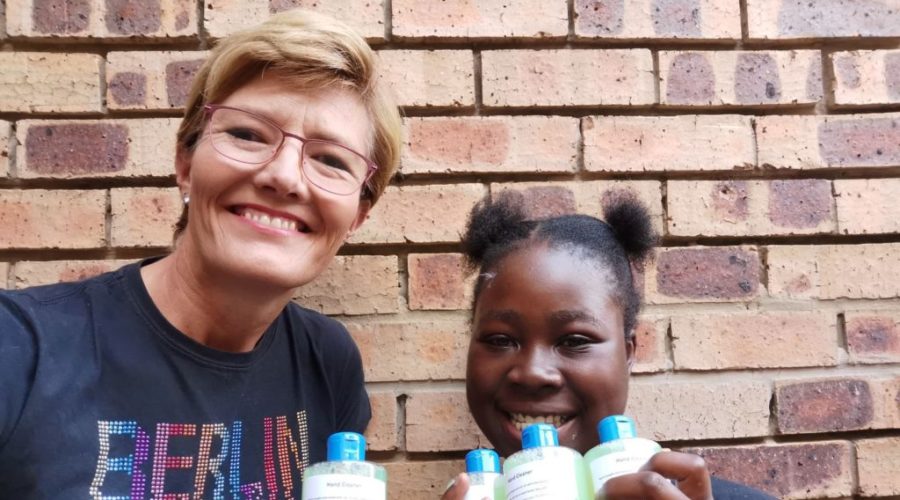Exploring South Africa
A lifelong resident of South Africa, International Liaison Officer (ILO) Kari Prince has seen firsthand the people’s resiliency and the complex history of the country. For Prince, being an ILO gives her the chance to share South Africa with students and faculty from other countries.
“Even though there is poverty, unemployment, and all the post-apartheid challenges, there is a great sense of humor in the South Africans, a great resilience, and there is so much that can be learned both ways—for the U.S. students and the South Africans we interact with,” says Prince.
Originally from Durban, on the east coast of the country, Prince attended the University of KwaZulu-Natal where she received a degree in economics and finance. While working in the business sector, Prince realized that public relations was her true passion. She worked as Public Relations Officer for the South Africa Sugar Association, before launching her own food and events company, Picnic Fanatics. In 2005 she sold the company and moved to Johannesburg to pursue other opportunities, which ultimately involved outreach work within the rural primary schools sector.
Then in 2013, Prince heard about TCS Education System through a friend and was soon working as an ILO, TCS’ first in South Africa. She embraced the chance to show others her country. In this position, Prince represents all of TCS’s affiliate partners in South Africa and helps “create a collaborative opportunity for staff and faculty.”
Currently, Prince is working with TCS partner colleges that have programs dealing with trauma—Saybrook University, Pacific Oaks College, and The Chicago School of Professional Psychology. “Unfortunately, South Africa has a lot to offer in terms of trauma: the poverty, gender-based violence, and crisis pregnancies,” she says.
Partnership in South Africa
During Prince’s seven-year tenure with TCS, she has built amazing relationships with many organizations and students, throughout her home country and beyond. As a result, students are able to have a more meaningful experience when they are visiting. Some of the most impactful have been exchanges of personal, rich stories. “I will take a group of students to an orphanage, and everyone will sit and talk for two hours, sharing amazing, personal stories and connecting over them,” she says.
Prince attended TCS’s first Education Beyond Borders (EBB) study abroad program in Berlin in 2016, and it was then that she first conceptualized its next trip—to South Africa. She considered what topics might be best for students to focus on and created a curriculum centered around identity. “I thought Ph.D. students would find it easier to relate to future clients or classmates if they know who they really are,” she says.
In 2018, EBB took 66 TCS students, faculty, and board members to South Africa. An incredibly diverse country with several languages and a racially varied population, South Africa also has 13 tribes that each have their own language, traditions, and rituals—which adds to many conversations around identity and culture. “For children from a mixed marriage where the parents speak two different languages, the questions of what is their family culture and what is their cultural identity arise,” Prince explains.
Prince believes EBB is so important for students to relate to others in different fields with whom they might not get a chance to connect, in a country they might otherwise not visit. “If anyone is given the chance to take an EBB trip, they should grab it with both hands,” Prince says.

